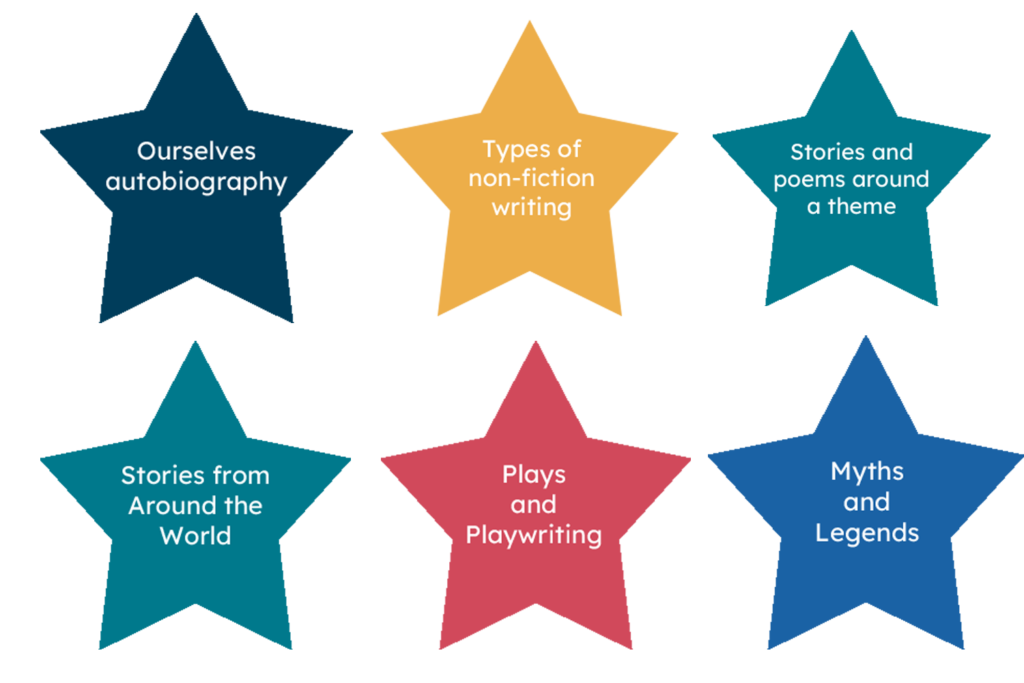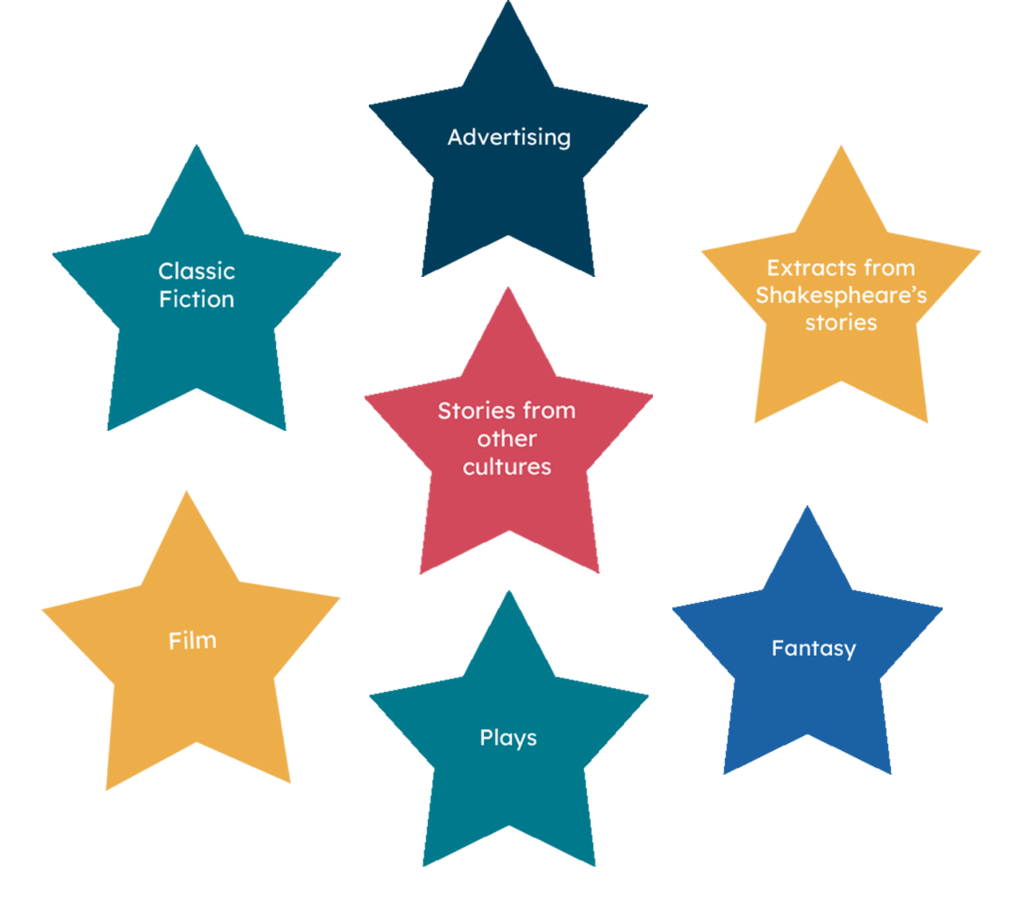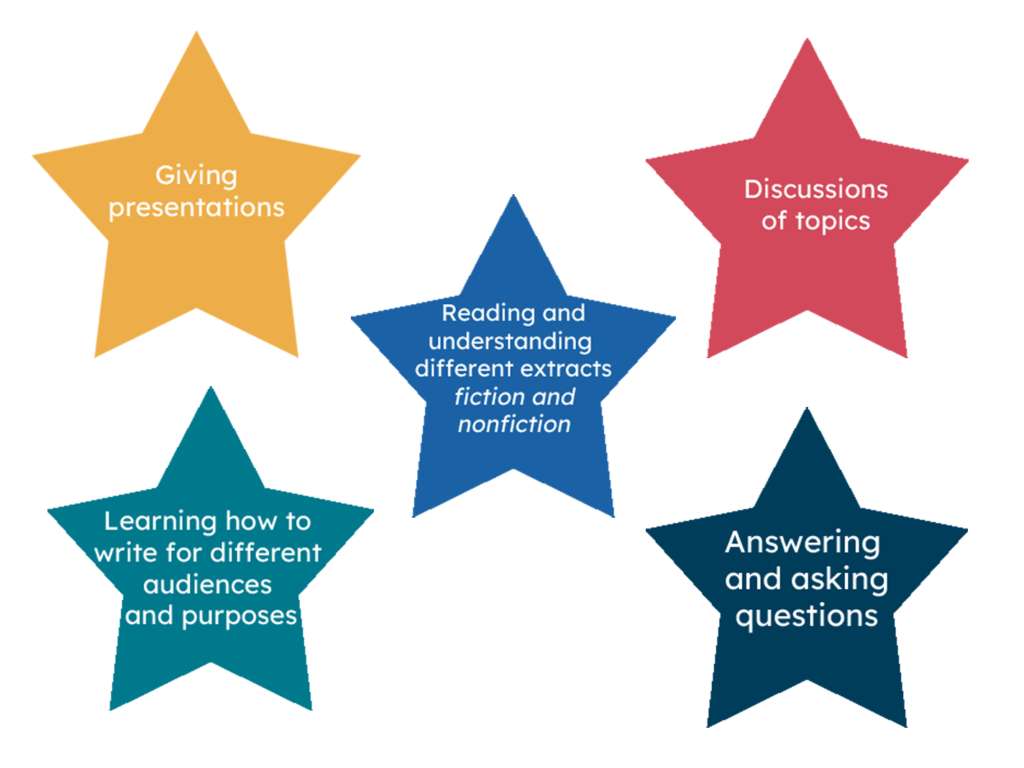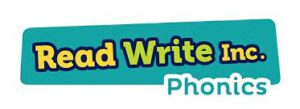Why we do it? – Intent
We want students to develop into adults who have skills that enable them to live fulfilling and productive lives. We want them to live lives that are enriched through a broad range of experiences. It is important that they fulfil their potential to enable them to be confident and have pride in themselves and what they can achieve. We celebrate difference and are aware that students come to us with a wide range of abilities and interests. The English curriculum is planned with these things in mind.
We aim to offer a broad English curriculum that gives the chance of progression through skills covered and also texts encountered. We also offer a curriculum that provides repetition of key skills to ensure that learning is embedded, as many of our students learn in this way. The curriculum is also flexible enough to be adapted to suit the needs of our students. We recognise that some students may not be able to access the written word but strive to ensure that they enjoy stories and books. Our aim is to enable students to be as independent in reading and writing as they are able to be – this is as much to enrich their lives as to provide them with the life skills that they need for adult life. We also want our students to become good communicators and these skills are taught through the English curriculum as well as across all subjects. For this reason our plans have a broad range of texts taken from different times and covering different genres. We have ensured that these reflect issues important to the world that we live in and challenge both gender and racial stereotyping. We also have a phonics programme that runs through the school but becomes more age appropriate as the students get older.




 At Sidestrandhall school we follow the ReadwriteInc programme
At Sidestrandhall school we follow the ReadwriteInc programme